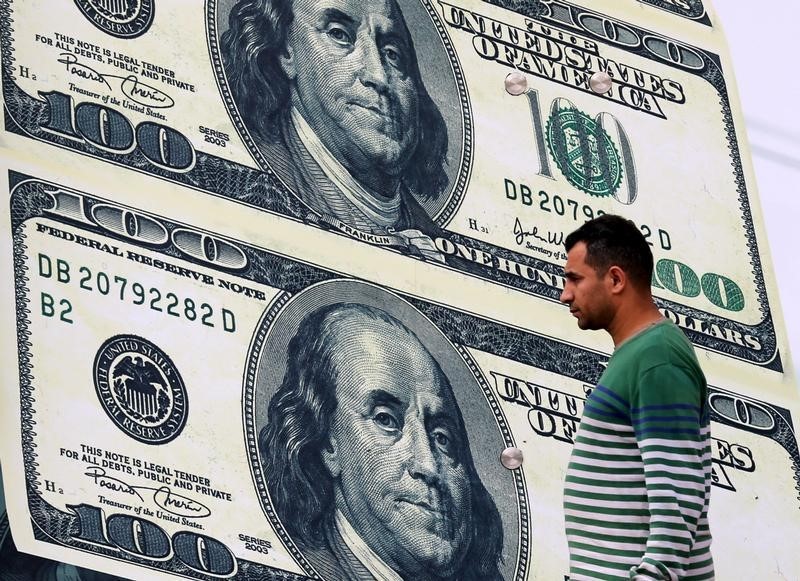Investing.com – The dollar fell against a major basket of currencies as President Donald Trump’s proposal to impose tariffs on steel and aluminium imports raised the prospect of a global trade war that could halt US economic growth.
The U.S. dollar index, which measures the greenback’s strength against a trade-weighted basket of six major currencies, fell 0.29% to 89.96.
Trump said Thursday, the US will impose a 25% tariff on steel imports and 10% tariff on aluminium. The highly controversial move raised fears that the U.S.’s main trading partners including China could take countermeasures, triggering a global trade war.
The EU has been quick to retaliate as Reuters reported that the trading bloc is considering setting duties on about $3.5 billion of U.S. imports if the United States proceeds with Trump’s tariff proposals.
Fearing the break out of a global trade war, traders piled into safe-haven currencies like the yen and Swiss franc, adding to downward momentum in the greenback.
USD/JPY fell 0.69% to Y105.49, while the USD/CHF to 0.9372. Demand usually rises for the yen and the Swissy in times of geopolitical tension or market turbulence because both countries have large current account surpluses.
Much move higher in the yen, however, came overnight as Bank of Japan governor Haruhiko Kuroda said the central bank would consider exiting from ultra-loose monetary policy measures by 2019 as there was a high probability that inflation would hit the bank's target.
The pound failed to capitalize on dollar weakness amid Brexit-related woes after UK Prime Minister Theresa May conceded that Brexit will reduce the UK’s access to the single market, reducing the chances of a so-called soft Brexit.
Action Economics said May's speech was notable for the fact that she finally admitted that the UK will have less access to the single market, implying that a "soft" Norway or Swiss-like deal is off the cards.
EUR/USD rose 0.45% to $1.2319 while USD/CAD rose 0.54% to C$1.2906.
